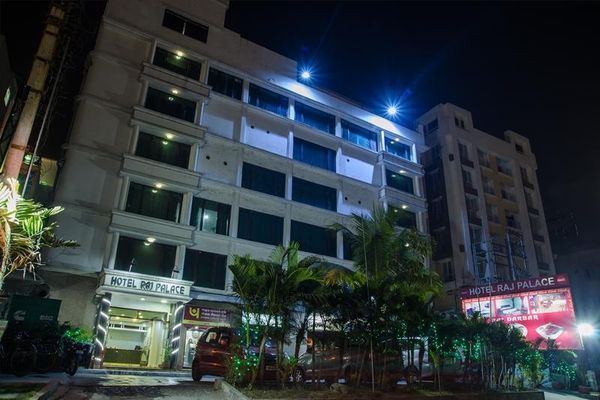The Hidden Impact of Urban Living: How Pollution Affects Your Skin Health
 Anderson Jon
31 May, 2025
11 mins read
24
Anderson Jon
31 May, 2025
11 mins read
24

In today’s fast-paced, city-centric lifestyle, our skin is under constant attack. From sun exposure to stress, countless factors can lead to skin problems, but one of the most overlooked culprits is pollution. With more people migrating to urban areas and air quality declining globally, it’s important to understand how pollution harms your skin and what steps you can take to protect it.
Understanding Pollution: What Are You Up Against?
Pollution isn’t just something that affects the environmentâ€â€it impacts your body, especially your skin. Common pollutants include particulate matter (PM), nitrogen dioxide, ozone, and volatile organic compounds (VOCs). These substances float around in the air, often invisible to the naked eye, and settle on the skin as we go about our daily lives.
Urban pollution tends to be the most concentrated due to high traffic, industrial activities, and construction dust. Living in a city often means constant exposure to these harmful elements.
How Pollution Affects Your Skin
Skin is the body’s largest organ and serves as a protective barrier. But when exposed to pollutants, it can become compromised in several ways:
1. Clogged Pores
Tiny particles in polluted air can settle deep into pores, especially when mixed with sweat or oil. This leads to blockages, which in turn can cause blackheads, whiteheads, and pimples. People with oily or acne-prone skin may notice a worsening of symptoms in polluted environments.
2. Skin Irritation and Inflammation
Pollutants such as ozone and nitrogen dioxide are known irritants. When these particles come into contact with your skin, they can trigger inflammation, leading to redness, itching, and discomfort. Over time, this inflammation can damage the skin barrier and lead to conditions like eczema or rosacea.
3. Premature Aging
Pollution accelerates oxidative stress, a process where free radicals damage skin cells. This breakdown of collagen and elastin leads to fine lines, wrinkles, and sagging skin. In fact, studies have shown that people living in urban environments often show signs of aging earlier than those in rural areas.
4. Hyperpigmentation
Long-term exposure to air pollution can also trigger melanin production, leading to dark spots or uneven skin tone. This is particularly true for people with darker skin tones, who may be more prone to post-inflammatory hyperpigmentation.
The Link Between Acne and Pollution
It’s no secret that acne is influenced by many factors: hormones, diet, genetics, and skincare routines all play a role. However, the link between acne and pollution is becoming increasingly clear. Pollutants irritate the skin, clog pores, and create an environment where acne-causing bacteria can thrive. Urban dwellers may find that their breakouts become more frequent or severe, even when following a good skincare regimen.
How to Protect Your Skin from Pollution
Thankfully, while we can't always control the environment around us, there are proactive steps we can take to defend our skin.
1. Double Cleanse Daily
Cleansing your skin thoroughly at the end of the day is essential. A double cleanseâ€â€first with an oil-based cleanser, then a water-based oneâ€â€can help remove makeup, sunscreen, and pollutants. This helps unclog pores and reduce the risk of irritation.
2. Use Antioxidants
Antioxidants like Vitamin C, Vitamin E, and niacinamide combat free radicals and reduce oxidative stress. Including serums or moisturizers with these ingredients in your routine can help neutralize the effects of pollution and protect your skin’s integrity.
3. Apply a Barrier Cream or Moisturizer
Keeping your skin hydrated helps reinforce the skin’s natural barrier. Look for moisturizers that include ceramides, hyaluronic acid, or squalane to lock in moisture and block out pollutants.
4. Incorporate SPF, Even in the City
Sun and pollution often go hand in hand. Even if you're not spending hours outdoors, UV rays can still penetrate clouds and windows. Daily use of broad-spectrum SPF 30 or higher is a must to prevent premature aging and protect your skin from further damage.
5. Invest in Air Purifiers
Using an air purifier in your home can improve indoor air quality and reduce the amount of particulate matter your skin is exposed to while you sleep or relax indoors.
6. Diet and Hydration
What you put into your body also affects your skin. Eat a diet rich in fruits, vegetables, and omega-3 fatty acids to help your skin fight environmental stress. Drink plenty of water to stay hydrated and flush out toxins.
Skincare Products That Fight Pollution
More brands are recognizing the need for anti-pollution skincare. Here are a few ingredients and products to look for:
- Charcoal or Clay Masks: These help draw out impurities and deeply cleanse pores.
- Pollution-Proof Moisturizers: Formulated to act as a physical shield against urban grime.
- Micellar Water: A gentle yet effective cleanser that removes dirt and pollution without stripping the skin.
- Face Mists with Minerals: Help refresh and balance the skin’s pH throughout the day.
When to See a Dermatologist
If you're experiencing frequent breakouts, rashes, or other skin problems and suspect pollution might be a factor, don’t hesitate to consult a dermatologist. They can provide targeted treatments, from topical prescriptions to chemical peels, that help restore your skin’s health.
Future Trends: Smart Skincare Against Pollution
As our understanding of environmental impact grows, skincare technology is advancing. We’re now seeing:
- Microbiome-Friendly Products: Designed to protect the skin’s natural flora from pollution-related imbalance.
- Anti-Pollution SPF: Combining sun protection with particle-repelling properties.
- Smart Fabrics and Wearables: Clothing and masks that help filter air pollutants for both respiratory and skin protection.
Conclusion: Protecting Your Skin is Protecting Your Health
Pollution is more than just an environmental issueâ€â€it’s a personal one. It doesn’t just affect the air we breathe but the very skin we live in. From acne to premature aging, the effects are real and long-lasting. But by understanding the connection and taking proactive steps, we can arm ourselves against the invisible invaders in our environment.
window.NREUM||(NREUM={});NREUM.info={"beacon":"bam.nr-data.net","licenseKey":"NRJS-3109bb2e2783f515265","applicationID":"558315209","transactionName":"blUHbEVQCxECBUVQWVcfMEpeHhARBhRCFlRVXwIXVEMAAxcDU1VZXh4VUEc=","queueTime":0,"applicationTime":138,"atts":"QhIEGg1KGB8=","errorBeacon":"bam.nr-data.net","agent":""}
Written By:
Anderson Jon



Hotels at your convenience
Now choose your stay according to your preference. From finding a place for your dream destination or a mere weekend getaway to business accommodations or brief stay, we have got you covered. Explore hotels as per your mood.


